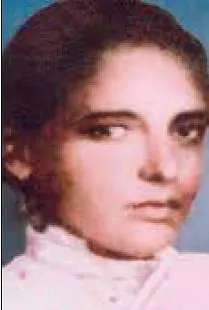BY NISAR AHMED SIDDIQUI
Maulana Hasrat Mohani gave the most passionate and emotional slogan of Jang-e-Azadi (Freedom Struggle) – “Inquilab Zindabad”. When Maulana gave this slogan, the whole of India reverberated with this slogan. This slogan inculcated a sense of enthusiasm and passion among the followers of Jang-e-Azadi. This slogan used to be on everyone’s tongue who was staging demonstrations and rallies against the British. Maulana Mohani so vehemently led the protest against the British that he demanded complete independence from then colonial rule. This demand was popularly manifested as Poorna Swaraj.
Although Maulana Mohani has been eclipsed by popular figures like Mahatma Gandhi, Jawaharlal Nehru, Maulana Abul Kalam Azad, Sardar Ballabh Bhai Patel, etc, his contribution to the Freedom Struggle is marked in golden letters. Moreover, his wife, Nishat-un-Nisa, is equally known for her courage and role in the Freedom Struggle.
In 1916, when Maulana Mohani was in jail, Nishat-un-Nisha not only bravely faced the English officers, but she also challenged them inside the court.
Nishat-un-Nisa Begum was born in the year 1885 in a simple family of Mohani in Unnao district of Uttar Pradesh. Her father Syed Shabib Hasan Mohani was a lawyer in the Hyderabad High Court. Nishat-un-Nisa was educated in Urdu, Arabic and Persian languages.
He was married to Hasrat Mohani in 1901. When she married Maulana Harsat Mohani, she was completely ignorant of politics. But time took such a turn that the woman who was busy with the responsibilities of the household became famous for her fearlessness and outspokenness from the courts to the Wazir-e-Hind.
In fact, when Hasrat Mohani was sent to jail for the first time, Nishat-un-Nisa was alone at home with her daughter. When Hasrat Mohani was being dragged to jail by the British, his daughter was burning in the heat of fever. It was all completely new to Nishat-un-Nisa. She was seeing this for the first time. But she faced these troubles stoically. She had shown her passion and courage in her first letter to her husband.
Nishat-un-Nisa wrote to Hasrat Mohani – “Tolerate the trouble you have faced like a man. Don’t take care of me or the house at all. Beware, you should not feel any kind of weakness.” Seeing this spirit and courage of his wife, Maulana Mohani started crying while reading the letter. At the same time, when Maulana Hasrat was arrested for the second time on 13 April 1916, Nishat-un-Nisa came out of the boundary wall of the house and herself took up the responsibility of defending the case. Nishat-un-Nisa herself went to the court and stood boldly in front of the British officers and judges.
Once during the prosecution of the case, a British officer tried to threaten her by showing her fear of arrest. But it didn’t cow down her. She instead gave him a befitting reply – “You can arrest me, but you cannot stop.” After this episode, no one dared to threaten her or misbehave with her. An anecdote is famous about Nishat-un-Nisa when she along with a delegation of eminent women of India came to meet the Wazir-e-Hind. During this meeting, she firmly spoke about the women of the country and demanded the fair treatment to them that they deserved.
Despite being brought up in a rustic environment, Nishat-un-Nisa always stood firm by her husband, Maulana Hasrat Mohani. Perhaps this is the reason why Harsat Mohani was very proud of her. There is also a mention about Nishat-un-Nisa in the letters of Bi Amma Abadi Bano Begum. In a letter to Uma Nehru, Bi Amma wrote that “I am glad that along with you and that brave daughter Nishat-un-Nisa Begum, I have also been included in the delegation of women, which on behalf of all the women of India will meet Wazir-e-Hind.”
While encouraging Maulana Hasrat Mohani to fight for freedom, Nishat-un-Nisa herself emerged as a brilliant character of Jang-e-Azadi. Nishat-un-Nisa, who played the role of a housewife devotedly also played a leading role in the Freedom Struggle. Today, as the country is remembering the great freedom fighters of Jang-e-Azadi in the 75th anniversary of Independence named Azadi Ka Amrit Mahotsav, the status of women like Nishat-un-Nisa Begum will undoubtedly rise multifold. She will burn like a candle of courage and inspiration for women of today’s India.
(The Author is Journalist and Research Scholar at Jamia Millia Islamia)
Disclaimer: The views and opinions expressed in this article are the personal opinions of the author.
The facts, analysis, assumptions and perspective appearing in the article do not reflect the views of GK.






